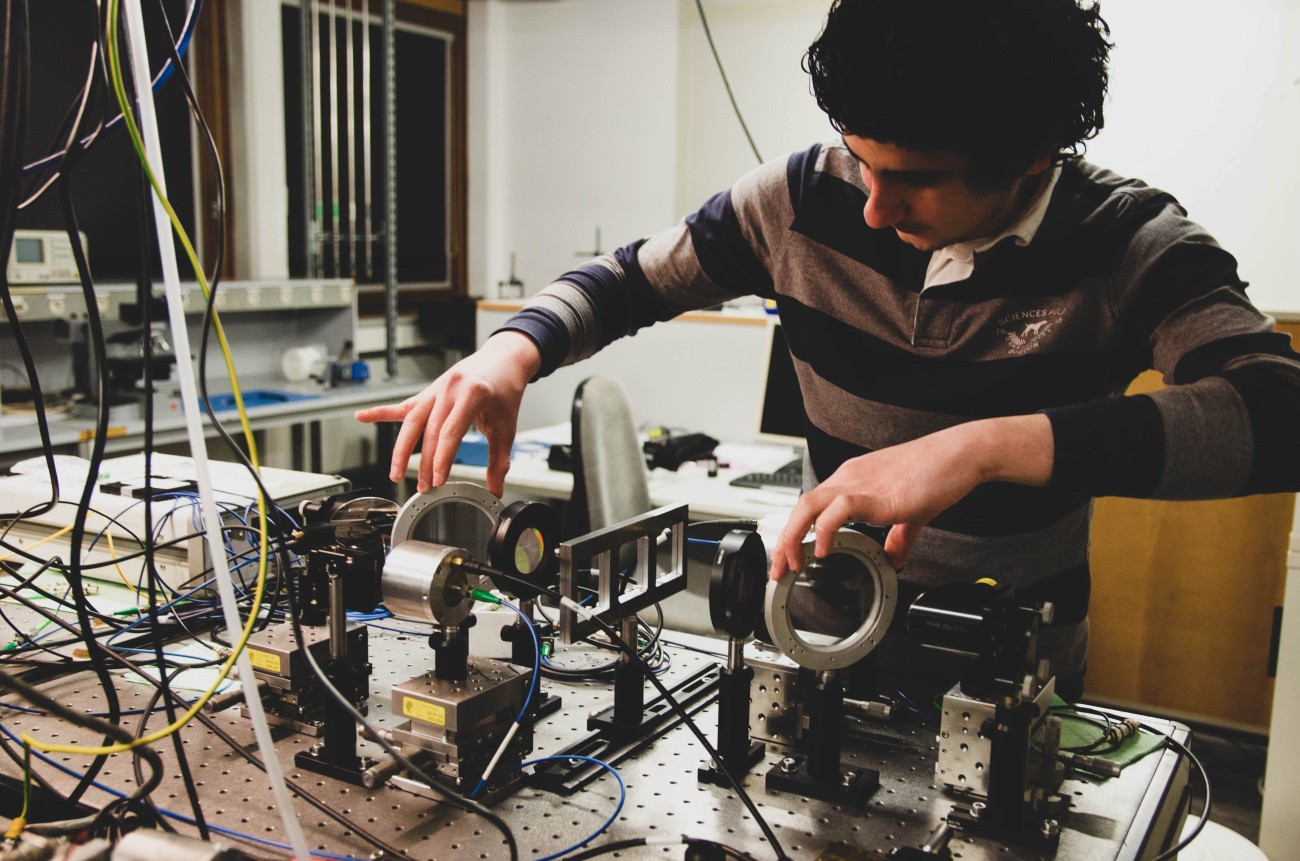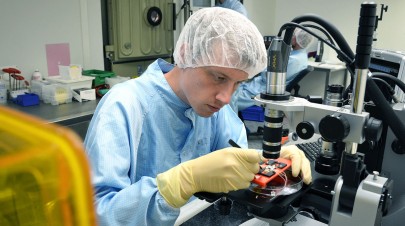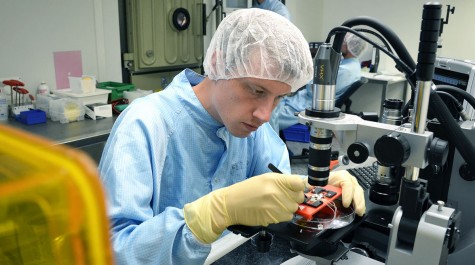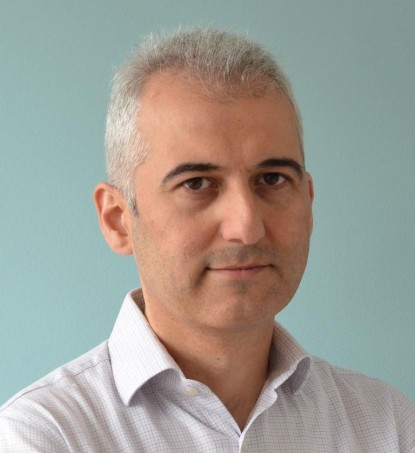Structure of the studies
The education on the Master’s level is highly research oriented. Results from ongoing research projects are incorporated into the graduate level courses. The practical relevance is realised through intensive, advanced laboratories and design projects. In these courses, the training in engineering is augmented by working in teams which is typical for any engineering task.
The choice of lectures has been strongly influenced by the interdisciplinary character of mechatronics. In the compulsory course section, system theory related lectures are of major interest. The students acquire knowledge in fields ranging from digital control systems, real-time programming of micro-controllers and advanced control methods to the modelling and simulation of mechatronic systems. Furthermore, the students train a systematic approach to product innovation.
The compulsory electives section covers different specialisations, such as:
These specialisations contain tightly meshed lectures from the Department of Mechanical Engineering and the Department of Electrical Engineering and Information Technology to ensure cross-domain training and education in mechatronics. In addition, selected lectures from the Department of Computer Science can also be included in the the personalised course of studies.




